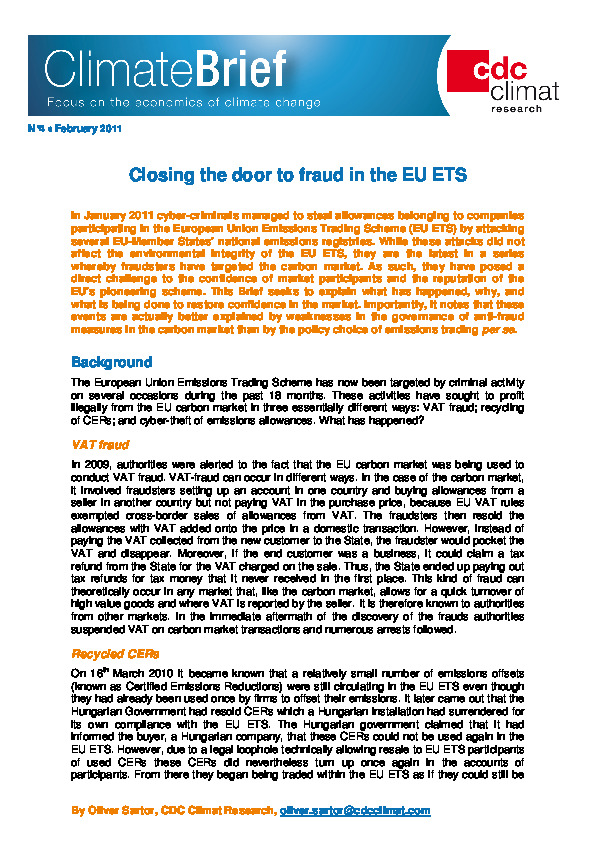Closing the door to fraud in the EU ETS
In January 2011 cyber-criminals managed to steal allowances belonging to companies participating in the European Union Emissions Trading Scheme (EU ETS) by attacking several EU-Member States’ national emissions registries. While these attacks did not affect the environmental integrity of the EU ETS, they are the latest in a series whereby fraudsters have targeted the carbon market. As such, they have posed a direct challenge to the confidence of market participants and the reputation of the EU’s pioneering scheme. This Brief seeks to explain what has happened, why, and what is being done to restore confidence in the market. Importantly, it notes that these events are actually better explained by weaknesses in the governance of anti-fraud measures in the carbon market than by the policy choice of emissions trading per se.
